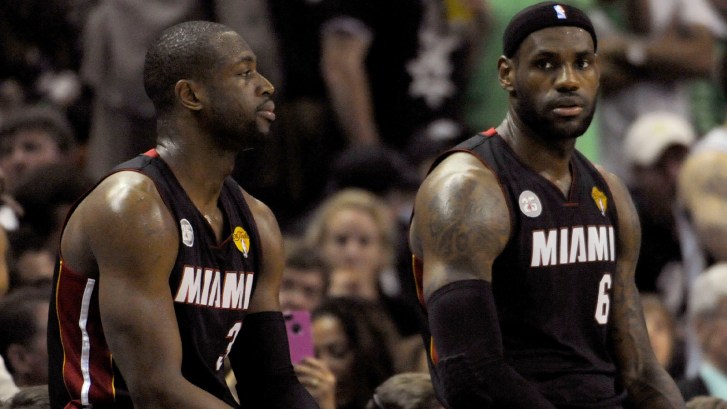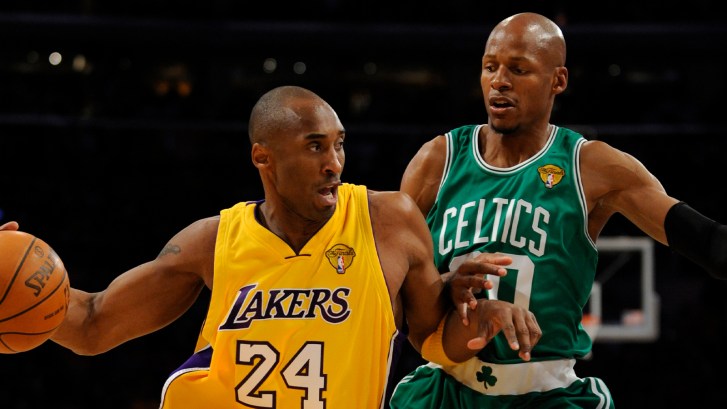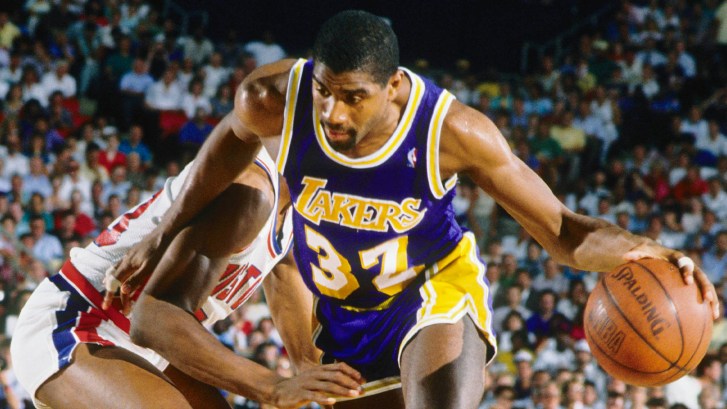On Monday, the Pacers fell into a 3-2 hole in the NBA Finals after the Thunder got the victory that put them one win away from a championship. History isn’t on Indiana’s side, but they can take some solace in knowing more than a few teams facing the same situation have rallied to win a title.

Bob Donnan-Imagn Images
The Thunder are now the 50th team to take a 3-2 lead over their opponent in the NBA Finals, and they should be pretty optimistic about their chances of securing the first Larry O’Brien Trophy since relocating to Oklahoma City when you consider teams in that position have walked away with the title on 40 occasions.
With that said, the Pacers also have the chance to become the 10th squad to bounce back with back-to-back wins and follow in the footsteps of the other teams that have managed to do exactly that.
Cavaliers (2016)

Bob Donnan-Imagn Images
The Warriors appeared in the NBA Finals five years in a row beginning in 2015 during the dynasty where they won a trio of titles—and they could have pulled off the four-peat if the Cavaliers hadn’t responded with their backs against the ropes in 2016.
Golden State actually had a 3-1 lead after the first four games, but LeBron James did what he does best by leading Cleveland to a win in two fairly decisive victories to even up the series.
The Warriors had home-court advantage on their side in Game 7, which was firmly the most competitive game of a series where the winning team had won by at least 11 points in every contest.
The Cavs ultimately eked out a 93-89 win to cap off the comeback while winning the first championship in franchise history.
Heat (2013)

Brendan Maloney-Imagn Images
The Heat had a miniature dynasty of their own in the first half of the 2010s thanks to the Big 3 that was comprised of LeBron, Dwyane Wade, and Chris Bosh, but they almost had to settle for a single championship during their four straight NBA Finals appearances between 2011 and 2014.
They met a Spurs team led by Tony Parker and Tim Duncan in 2013 and traded wins before San Antonio pulled out to a 3-2 lead with a 114-104 victory in Game 5.
The two teams needed overtime to decide Game 6, but Miami was able to stay alive by ending up on the right side of the 103-100 result. The Spurs gave the Heat a run for their money on the road in Game 7, but the home team pulled away in the closing minute to prevail in its quest to defend its championship.
Lakers (2010)

Robert Hanashiro-USA TODAY via Imagn Content Services, LLC
The Lakers were hoping to get some revenge against the Celtics in 2010 after losing to Boston in the NBA Finals a couple of years prior, but they found themselves facing an uphill battle after squandering a 1-0 lead and falling into a 3-2 hole after Game 5.
The Celtics suffered a big loss after Kendrick Perkins went down with a knee injury in the first quarter of Game 6, and the Lakers coasted to a resounding 22-point victory.
Momentum was on their side heading into Game 7, and while the Celtics pulled out to a 13-point lead toward the start of the second half, Los Angeles was able to crawl back and fend off Boston as Kobe Bryant secured his fifth and final title.
1994 (Rockets)

MPS-Imagn Images
The 1994 NBA Finals were marketed as a showdown between two formidable big men in the form of Atlanta’s Hakeem Olajuwon and New York’s Patrick Ewing, who were both on the hunt for their first ring.
It was a back-and-forth series for the first four games before the Knicks broke the pattern by getting their second straight win in Game 5, although they knew they’d be heading into enemy territory for the last two contest.
The Hawks narrowly avoided a loss with a two-point win in Game 6, and Olajuwon led the team in points, rebounds, and assists in the deciding tilt while getting the title that had eluded him for a decade (the first of back-to-back championship with Atlanta).
1988 (Lakers)

MPS-Imagn Images
The “Showtime Lakers” ended up in the NBA Finals eight times over the course of the 1980s while taking home five championships during that span.
They were matched up against the “Bad Boy” Pistons in 1988, and Los Angeles pulled out to a 2-1 lead before Detroit surged back to go up 3-2 heading into Game 6.
The Lakers got a 103-102 win that Kareem Abdul-Jabbar sealed with the two free throws he sank after Bill Laimbeer was hit with a controversial foul call with 14 seconds left, and we were treated to another nail-biter in Game 7 before Los Angeles prevailed by a score of 108-105.
Bullets (1978)

Malcolm Emmons-Imagn Images
The 1978 NBA Finals featured two teams that don’t technically exist anymore in the form of the SuperSonics (now the Thunder) and the Bullets, who rebranded as the Wizards in 1997.
This was another series where the two teams traded blows over the first five games, and Seattle pulled out to a 3-2 lead with a four-point win in Game 5.
The Bullets responded with a 35-point blowout at home in Game 6, and while the final contest was a bit more competitive, Washington capped things off with a 105-99 win on the road.
Celtics (1969)

Darryl Norenberg-Imagn Images
It’s hard to imagine the NBA will ever see a dynasty that rivals the one the Celtics constructed in between 1957 and 1969—a run where they appeared in the NBA Finals 12 times in 13 years, only lost a single time (to the St. Louis Hawks in 1958), and won eight championships in a row starting in 1959.
The Lakers fell to Boston in the Finals seven times during that unreal run, which included the showdown between the two teams during that era in 1969.
Los Angeles jumped out to a 2-0 lead in a series they were favored to win, and it looked like they had finally gotten Boston’s number. Unfortunately, the Celtics didn’t hear no bell, as they responded with two wins of their own before the Lakers answered to take a 3-2 lead.
Boston cruised to a 99-90 victory in Game 6, but we were treated to a Game 7 thriller where the Celtics once again prevailed by earning a 108-106 victory.
Celtics (1962)

Getty Image
That wasn’t the only time the Lakers were unable to take advantage of a 3-2 lead against the Celtics, as they found themselves facing the same scenario in 1962.
The Celtics were also able to even up the series in comfortable fashion in Game 6, and fans got an all-time classic when Game 7 went into overtime as Bill Russell posted 30 points and 40 rebounds while leading Boston to its fourth straight title.
Nationals (1955)

Getty Image
The Pistons were still playing in Fort Wayne, Indiana when they took on the Syracuse Nationals team that transformed into the 76ers eight years after the two teams met in the NBA Finals in 1955.
There are a couple of quirks about this series that stand out.
The first is that the Pistons had to play their home games in Indianapolis because their arena in Fort Wayne had booked other events while operating under the assumption they weren’t good enough to play for a championship.
The second is that some people believe the Nationals were able to overcome their 3-2 deficit after gamblers paid Fort Wayne players to throw the series, as Syracuse had to rally from a sizeable deficit in Game 7 and benefited from some suspect turnovers in the final minute that helped them sneak out a 92-91 win.